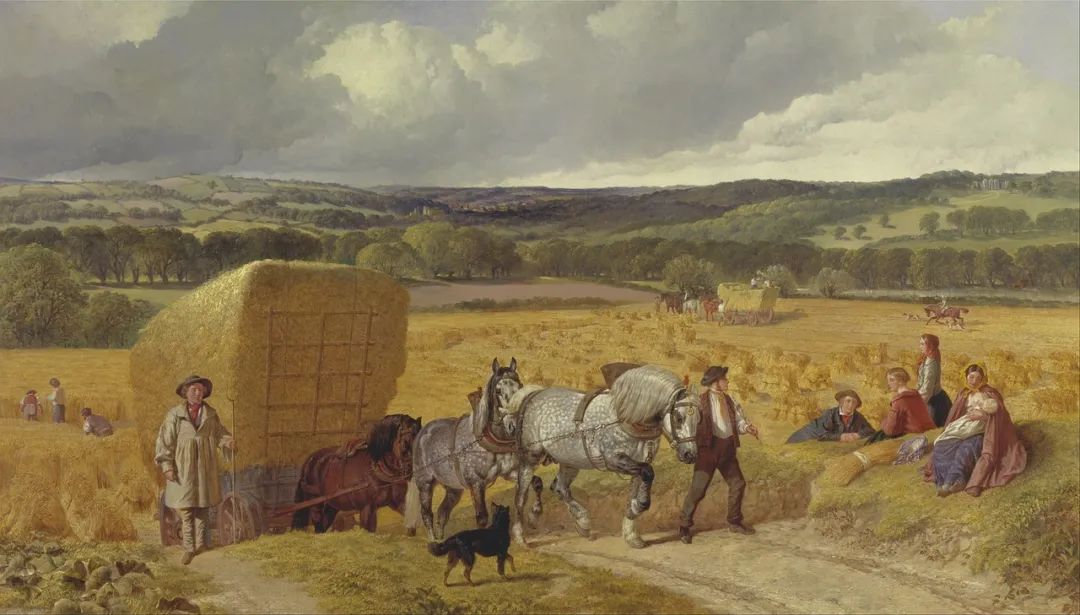Last Tuesday, I had a video call with a senior colleague at the company, Tracy. Colleagues fondly refer to her as the "Atmosphere Manager with profound cultural knowledge."

Tracy in the white sweater and glasses on the far right
I wanted to broaden the style of the "Colleagues Say" channel, aiming to present the unique qualities of our fellow Bezan partners in a more diverse way. Therefore, departing from the habit of writing outlines and selecting topics myself, I asked Tracy to choose a topic she was interested in for this interview. This is how we ended up having this discussion centered around English literature.
Her connection with English literature dates back to her high school days when she began reading many classic works of English literature through the "Bookworm" series, which opened the door to her passion for this field.

"At that time, my reading was very pure, without the utilitarian aspect that comes with growing up and working. Back then, even though it might have been for the purpose of improving my English, as you probably know, the 'Bookworm' series had both English and Chinese, and it was about half and half. So, you would read the story while naturally absorbing the language, and it was a lot of fun."
We talked about two classic works by Jane Austen, "Pride and Prejudice" and "Sense and Sensibility." She gave me a brief overview of the plots and themes of these two novels.

"Pride and Prejudice" revolves around the female protagonist, Elizabeth Bennet, and her emotional entanglement with Mr. Darcy. It explores issues of social class, marriage ideals, and the status of women. With its witty and humorous writing and profound social insights, this novel has become a classic in feminist literature. In the story, Elizabeth, with her intelligence, wit, and independent thinking, ultimately chooses her true love over societal conventions.
The other novel, "Sense and Sensibility," is also one of Jane Austen's representative works. It portrays the fates of the two sisters, Elinor and Marianne, to illustrate the limitations and challenges women faced in the society of that time. The novel emphasizes the balance between reason and emotion and calls for women to maintain independent thinking and the right to choose in marriage. This spirit of self-determination has also become an important theme in feminist literature.
During our discussion of "Pride and Prejudice," Tracy pointed out a common sentiment among women of that era, referred to as "spinsterhood dread."
Combined with the social context of that time, women lacked property inheritance rights within their families. For example, in "Sense and Sensibility," Mr. Dashwood had a vast estate, but under British laws and conventions, he left all his inheritance to his son before his death, leaving only a small sum for his wife and three daughters. The mother and her three daughters were forced to move out of their home and find a new place to live. In some cases, even distant male relatives like nephews or cousins inherited the estate instead of daughters. The only way for a woman to seek a happy life was often through marriage to a good man.

In the context of 19th-century British society, another practice that existed was "wife selling." Women in such a society were often alienated and, in some cases, self-alienated, valuing themselves based on the price they could fetch in marriage. Such incidents occurred among Jane Austen's own relatives.
In 1752, Austen's aunt, Philla, harboring dreams of wealth, joined a "fishing fleet" and embarked on a long journey to India in search of a wealthy employee of the East India Company. Soon, a company doctor paid for Philla and became her husband. He was 20 years her senior and, in addition to practicing medicine, he engaged in smuggling with company executives, including Warren Hastings, who later became the first Governor-General of India. Through these activities, they accumulated a considerable fortune.
A marriage based solely on financial support and lacking emotional foundation proved to be unstable. Coupled with the significant age difference between them, the couple's relationship deteriorated after marriage, leading to frequent separations. The young and beautiful Philla was often left alone at the East India Company headquarters in Calcutta. Several years later, she gave birth to a daughter named Eliza.
Rumors of Philla's infidelity were widespread, with some speculating that Warren Hastings was the biological father of Eliza. When Eliza was four years old, she returned to England with her parents and settled in the suburbs of London.
Aunt Philla's legendary experience in the East India Company deeply influenced the young Austen. The commodification of women and market-based marriages had a significant impact on her views on love. It shaped Austen's perspective that marriages driven solely by wealth and lacking emotional foundations were destined to fail, and extramarital affairs were often morally condemned. This theme is evident in her works.
Next, we discussed another writer, Thomas Hardy, known for his tragic literature. Tracy mentioned his works "Tess of the d'Urbervilles" and "Far from the Madding Crowd."
"Tess of the d'Urbervilles" revolves around the fate of the female protagonist, Tess Durbeyfield, and portrays her resilience and perseverance in a male-dominated society. Tess faces various hardships in the story, but she remains steadfast in her pursuit of love and life. This novel offers a profound reflection on the destinies of women and prompts people to contemplate and question social systems.
"Far from the Madding Crowd" tells the story of Bathsheba Everdene and Bathsheba's independent and resilient character. In a male-dominated society, Bathsheba successfully protects herself and what she values through her intelligence and decisiveness. This novel showcases her strength and determination in the face of challenges.
Hardy's works also present a feminist perspective. In fact, there was a small mix-up during the interview because I hadn't read Hardy's works, and I even asked Tracy, "Is this also a female writer?"
"He's a male writer, but aside from feminist themes, the stories he writes are really quite tragic," Tracy explained.
Hardy's works are tragic, as Friedrich Engels said: "The contradiction between the historical necessity of the movement and the impossibility of its realization." His most tragic novels are primarily driven by intense conflicts between characters and their environment, ultimately leading to the tragic outcomes for the characters.
For example, Tess's pursuit of a pure and beautiful love is ruthlessly crushed by her environment; Jude's lifelong aspiration to study at Christminster and find true love with Sue is similarly extinguished by the harsh realities of his surroundings; and Henchard, desiring genuine love, meets an equally tragic fate.
She emphasized the importance of economic independence for women's empowerment when discussing feminism. She believed that women who have financial autonomy and capability can truly realize their self-worth, think independently, and not be bound by external constraints.
"That old saying, what's it called... 'The economic base determines the superstructure.'"
"I couldn't agree more with that statement."
Writers have explored the challenges and hardships women faced in society during their time by creating strong and independent female characters. This is also the early voice of awakening for women. In a company primarily led by women, I believe that each person we have interviewed, from Cindy Boss to the post-00s young professionals, embodies the essence of modern women: independence, autonomy, thoughtful, and leading a fulfilling life through their own words and actions.
"So if you were to recommend a book to a friend who hasn't had any exposure to English literature, which one would you recommend?"
"Obviously."
"Oh?"
"Jane Eyre."
Her cheerful and friendly smile was present throughout our video call, and our online conversation came to a close.







 Cycling Jersey: The Essential Apparel for Every Cyclist
Cycling Jersey: The Essential Apparel for Every Cyclist